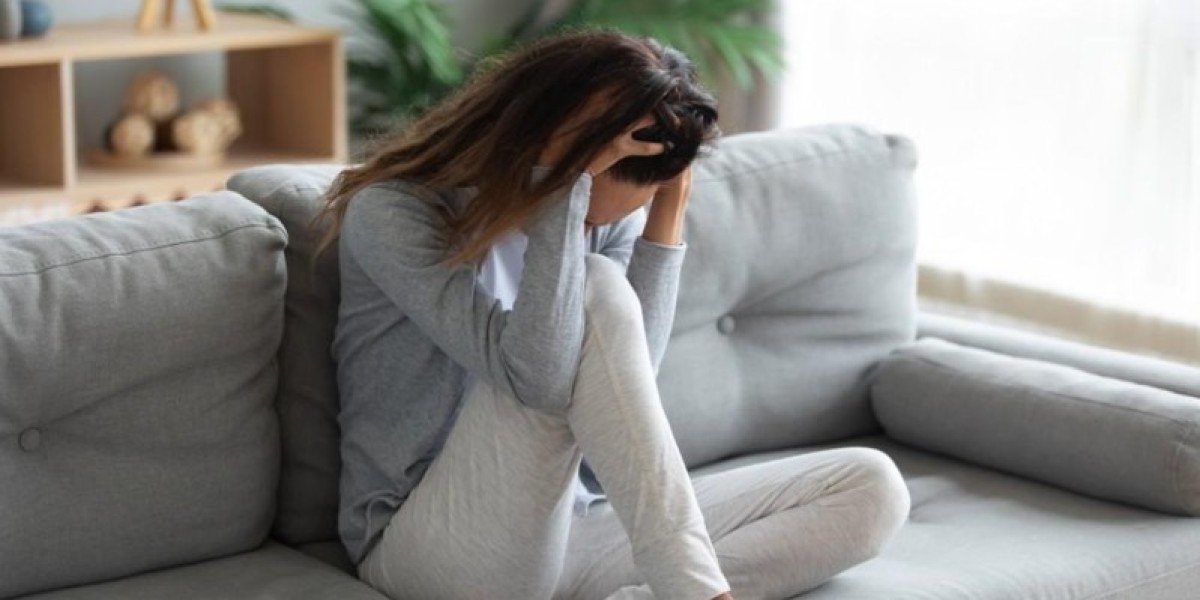Can Emotional Stress Cause Spotting? | Best writes
At Bestwrites, we often discuss how mental and emotional health can influence the body — especially during the menstrual cycle. One common concern many women have is whether Emotional stress can cause spotting between periods.
The answer is yes. Your mental state plays a decisive role in regulating your reproductive hormones. Intense emotions, anxiety, or chronic stress can disrupt the delicate hormonal balance that governs your menstrual cycle, sometimes leading to stress-related vaginal bleeding or spotting.
Let's explore how stress and vaginal bleeding, emotional health and hormones, and overall mental wellness for women are closely connected — and what you can do to restore balance. ?
Stress and Vaginal Bleeding
The link between stress and vaginal bleeding is primarily hormonal. When you're under stress, your brain triggers the release of cortisol — often called the stress hormone. Elevated cortisol levels can suppress the production of reproductive hormones, such as estrogen and progesterone, both of which are essential for regulating the menstrual cycle.
When these hormones become imbalanced, the uterine lining may shed irregularly, causing light bleeding or spotting between periods. Some women may also experience delayed cycles or heavy bleeding following periods of prolonged stress.
At Bestwrites, we remind women that their bodies don't distinguish between emotional and physical stress — both can affect their hormones and cycle. Learning to manage stress effectively can reduce these irregularities and support long-term reproductive health.
Emotional Health and Hormones
Your emotional health and hormones are deeply intertwined. The same brain regions that control emotions — such as the hypothalamus and pituitary gland — also regulate hormone production. When emotional stress is high, the hypothalamus may send inconsistent signals to the ovaries, disrupting ovulation and menstruation.
This is why emotional turmoil, anxiety, or depression can trigger symptoms like spotting, cramps, or mood swings. Additionally, poor sleep or stress-induced stress-induced lo further destabilizes hormonal rhythms.
At Bestwrites, we emphasize that emotional self-care is not just about feeling better mentally — it's essential for hormonal harmony. Balanced emotions support balanced hormones.
Menstrual Irregularities and Stress
Stress is one of the most common causes of menstrual irregularities. Whether it's work pressure, family challenges, or emotional exhaustion, stress can alter your menstrual rhythm in several ways:
Delayed or missed periods: High cortisol can suppress ovulation.
Spotting between cycles: Hormonal dips can cause light bleeding.
Heavier or painful periods: Emotional stress heightens uterine muscle tension.
Shortened or prolonged cycles: The hormonal feedback loop becomes disrupted.
At Bestwrites, we remind women that occasional spotting from stress is normal. Still, persistent irregularities should be discussed with a healthcare professional to rule out underlying conditions such as thyroid disorders or polycystic ovary syndrome (PCOS).
Mental Wellness for Women
Maintaining mental wellness for women is one of the most effective ways to prevent stress-related spotting and hormonal imbalances. When your mind is calm and supported, your body follows suit.
Here are some holistic approaches recommended by Bestwrites to improve mental and hormonal balance:
?♀️ Practice mindfulness: Deep breathing, meditation, or journaling can help reduce stress hormone levels.
? Eat hormone-supportive foods: Include leafy greens, omega-3 fats, and whole grains to nourish your nervous system.
? Prioritize sleep: Quality rest allows your body to repair and regulate hormone production.
? Stay connected: Talking with friends, loved ones, or therapists can ease emotional burdens.
?♀️ Move gently: Regular physical activity like yoga or walking helps lower cortisol and boost mood.
At Bestwrites, we believe true wellness means balancing emotional, physical, and hormonal health together.
Final Thoughts from Bestwrites
So, can emotional stress cause spotting? Absolutely. The connection between stress and vaginal bleeding, emotional health and hormones, and menstrual irregularities shows that your emotions and your cycle are inseparable.
When you experience intense or prolonged stress, your hormones respond — sometimes in the form of spotting or irregular periods. The good news is that by focusing on mental wellness, you can help your body return to a natural rhythm.
At Best Writes, we’re passionate about helping women understand their bodies and emotions better. When you nurture your mental and emotional health, your hormones — and your entire body — thrive in balance. ??♀️






